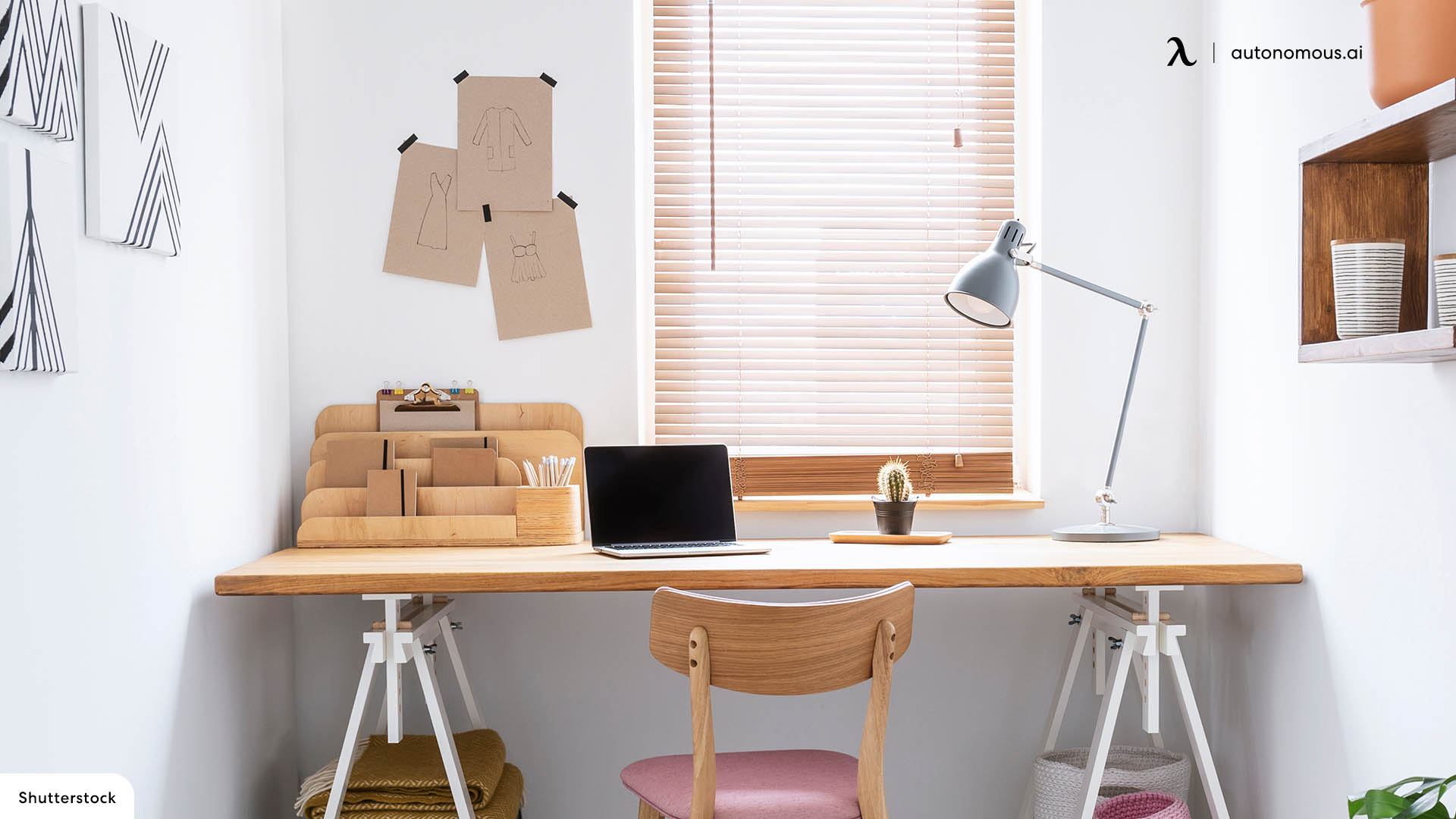
Feng Shui: Office Desk Against Wall, or Not?
Table of Contents
When setting up your workspace, one of the most debated topics in Feng Shui is whether to place your desk against a wall or opt for a more open arrangement. While a wall-facing desk can save space and create a focused work environment, it may also block energy flow, potentially impacting creativity and productivity. On the other hand, positioning your desk to face the room or a window can invite better energy and foster a sense of control.
Are you looking to maximize space and functionality in your home office in the living room? Transforming a guest room into a dual-purpose space or seamlessly integrating your office into the living room can be both practical and stylish. Pairing your setup with an ergonomic chair and an adjustable desk ensures comfort and versatility, promoting productivity and well-being. Whether you're aiming for a cozy nook or a more integrated design, these home office guest room ideas infused with Feng Shui offer creative solutions for a harmonious blend of work and relaxation in your home.
Feng Shui: Is Your Office Desk in Harmony?
Feng Shui, an ancient Chinese practice, translates to "wind-water." It's a philosophy that seeks to harmonize individuals with their surroundings. The belief is that the energy (chi) flowing through our environments profoundly affects our well-being, success, and happiness. Feng Shui principles can be applied to homes, offices, and even cities, aiming to optimize the flow of energy for positive outcomes.
Why Feng Shui Matters
Practitioners believe that good Feng Shui can lead to improved health, increased productivity, stronger relationships, and overall abundance. In a workspace, Feng Shui can enhance focus, creativity, and career advancement. By understanding how chi flows and interacts with your environment, you can make intentional choices to create a space that supports your goals.
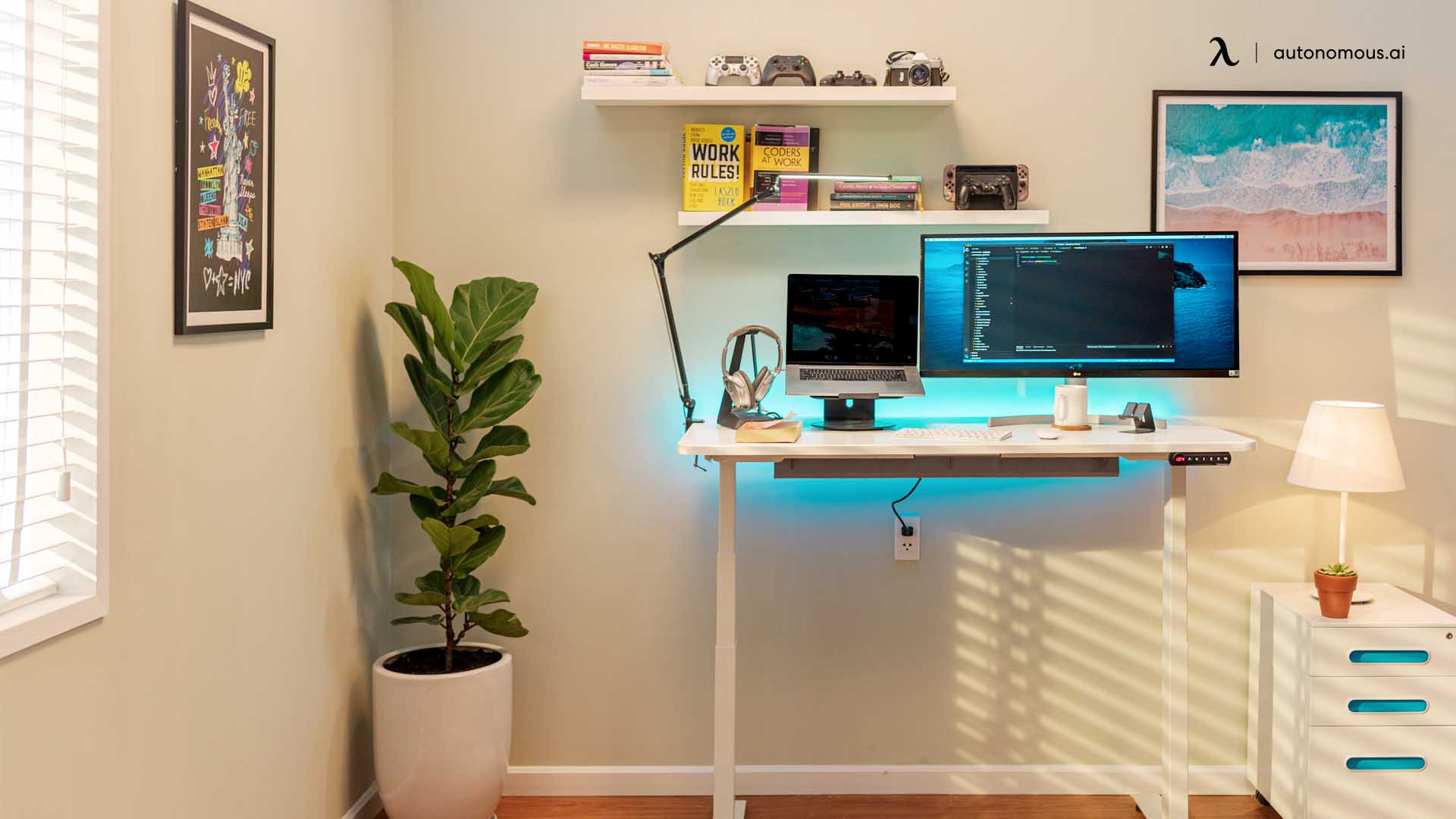
Wall vs. Open Space
One of the most debated aspects of office Feng Shui is desk placement. Does your desk belong against a wall, or should it command a view of the room? The answer lies in understanding the "commanding position."
The Feng Shui Ideal
In Feng Shui, the commanding position is the optimal placement for your desk. It embodies three key elements:
- Back to the Wall: A solid wall behind you provides a sense of support and protection, like a mountain. It symbolizes stability and prevents energy from being drained away.
- Clear View of the Entrance: Seeing who enters and exits your space gives you a sense of control and allows you to welcome positive energy.
- Not Directly in Line with the Door: This avoids being bombarded by the incoming energy, which can be disruptive and unsettling.
This commanding position is believed to foster focus, productivity, and career success. It allows you to receive beneficial chi while mitigating negative energy (sha).
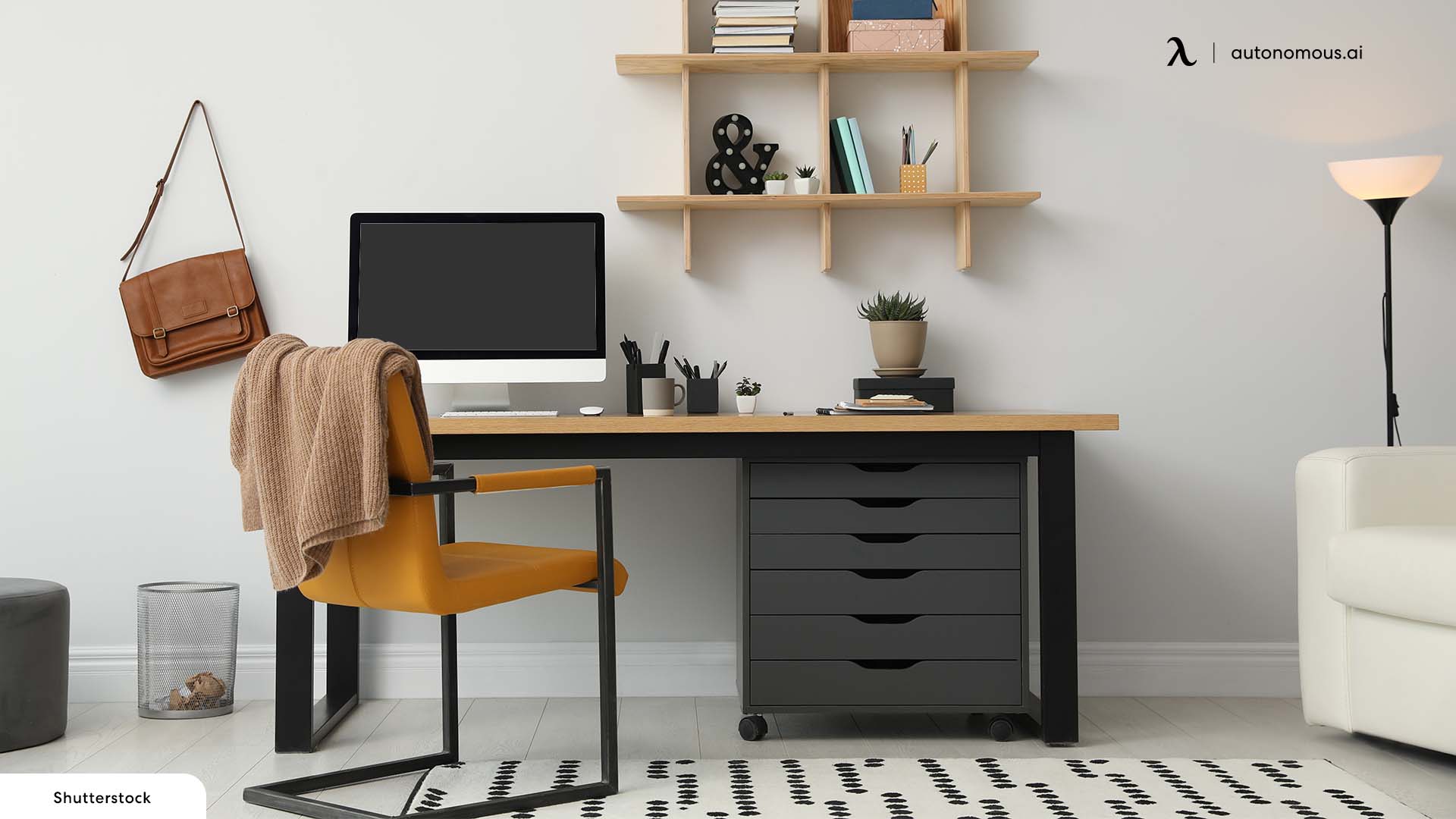
Desk Against the Wall: Benefits and Drawbacks
While not the ideal commanding position, a desk against a wall offers practical advantages:
- Storage: Utilize wall space for shelves, cabinets, or inspiration boards.
- Reduced Distractions: If your workspace is in a busy area, facing a wall can minimize visual distractions.
- Comfort: Some find a wall behind them comforting and less exposed.
However, there are potential downsides:
- Limited Perspective: Facing a wall can feel restrictive and hinder creativity.
- Missed Opportunities: You might miss out on the energy and interactions happening in the room.
- Stagnant Energy: Some Feng Shui practitioners believe it can block the flow of chi.
Desk not against a wall feels the better choice if you consider these downsides.
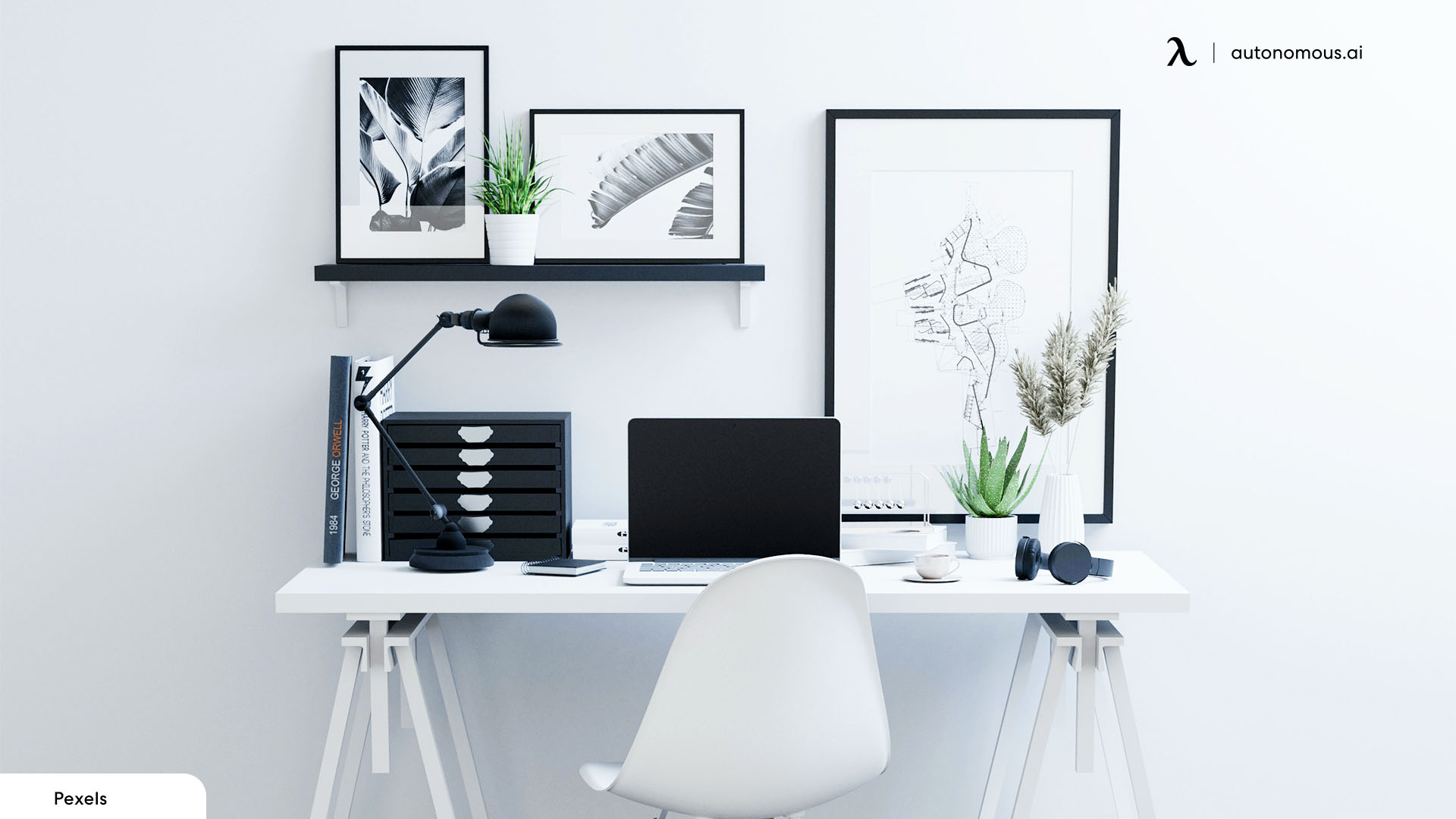
Alternatives and Practical Solutions
If a commanding position isn't feasible, consider:
- Desk in the Middle of the Room: This provides a 360-degree view and a sense of openness.
- Angled Desk: This balances a commanding view with the security of a wall.
- Mirrors: If facing a wall, place a mirror to reflect the entrance and expand your view.
Regardless of your desk placement, prioritize these Feng Shui elements:
- Declutter: A tidy space promotes a clear mind and positive energy flow. A standing desk with cord management can help you maintain this harmony by keeping cables organized and out of sight, ensuring your workspace remains clean and distraction-free.
- Nature: Incorporate plants to purify the air and add life energy.
- Lighting: Ensure ample natural and artificial light for a vibrant workspace.
- Personal Touch: Surround yourself with inspiring items that motivate you.
The most harmonious desk placement is the one that feels best for you. Experiment, trust your intuition, and create a workspace that energizes and supports your well-being.
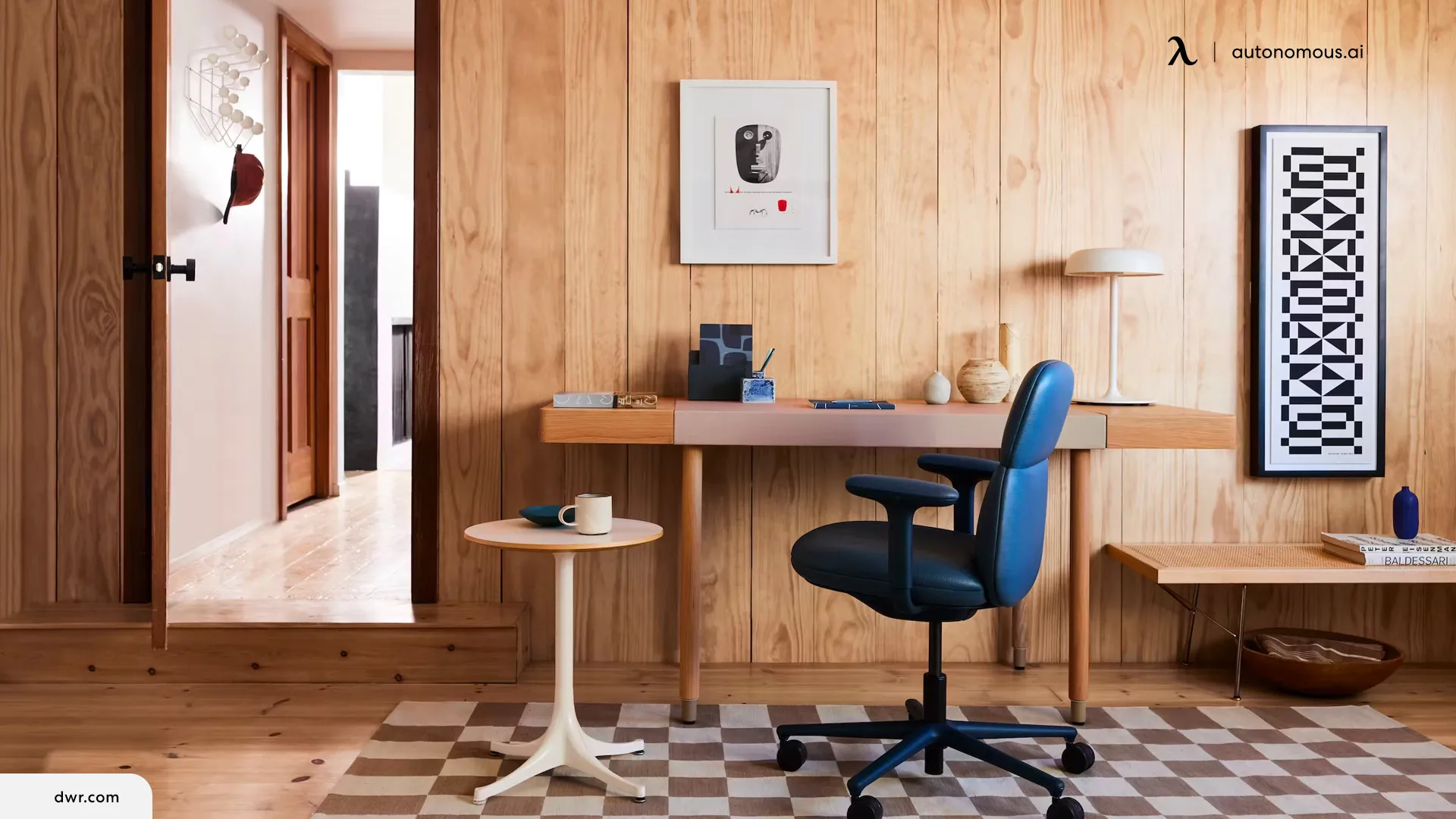
FAQs
Should I place my desk in the middle of the room or against the wall?
The desk placement in the home office depends on your preferences and the dynamics of your workspace. Placing your desk in the middle of the room or against the wall depends on your workspace goals and Feng Shui preferences. A desk in the middle of the room fosters openness and creativity, ideal for collaborative or dynamic environments. On the other hand, placing your desk against the wall offers a sense of stability and support, creating a focused and grounded workspace. Balancing these placements with your personal needs can help you achieve the perfect office setup.
Is it okay to lean my desk against the wall?
Yes, a desk leaning against a wall can create a more casual and dynamic feel in your workspace. Just ensure that the desk is stable and secure.
How should I position my desk if it's facing a wall in Feng Shui?
When your desk is facing a wall, it's important to create balance and flow in the space. You can achieve this by incorporating elements that promote movement, such as a mirror or a piece of art.
What are the benefits of having a home office desk against a wall?
Having your home office desk against a wall can provide a sense of stability and support, enhancing focus and concentration. It can also create a feeling of security, boosting confidence and productivity.
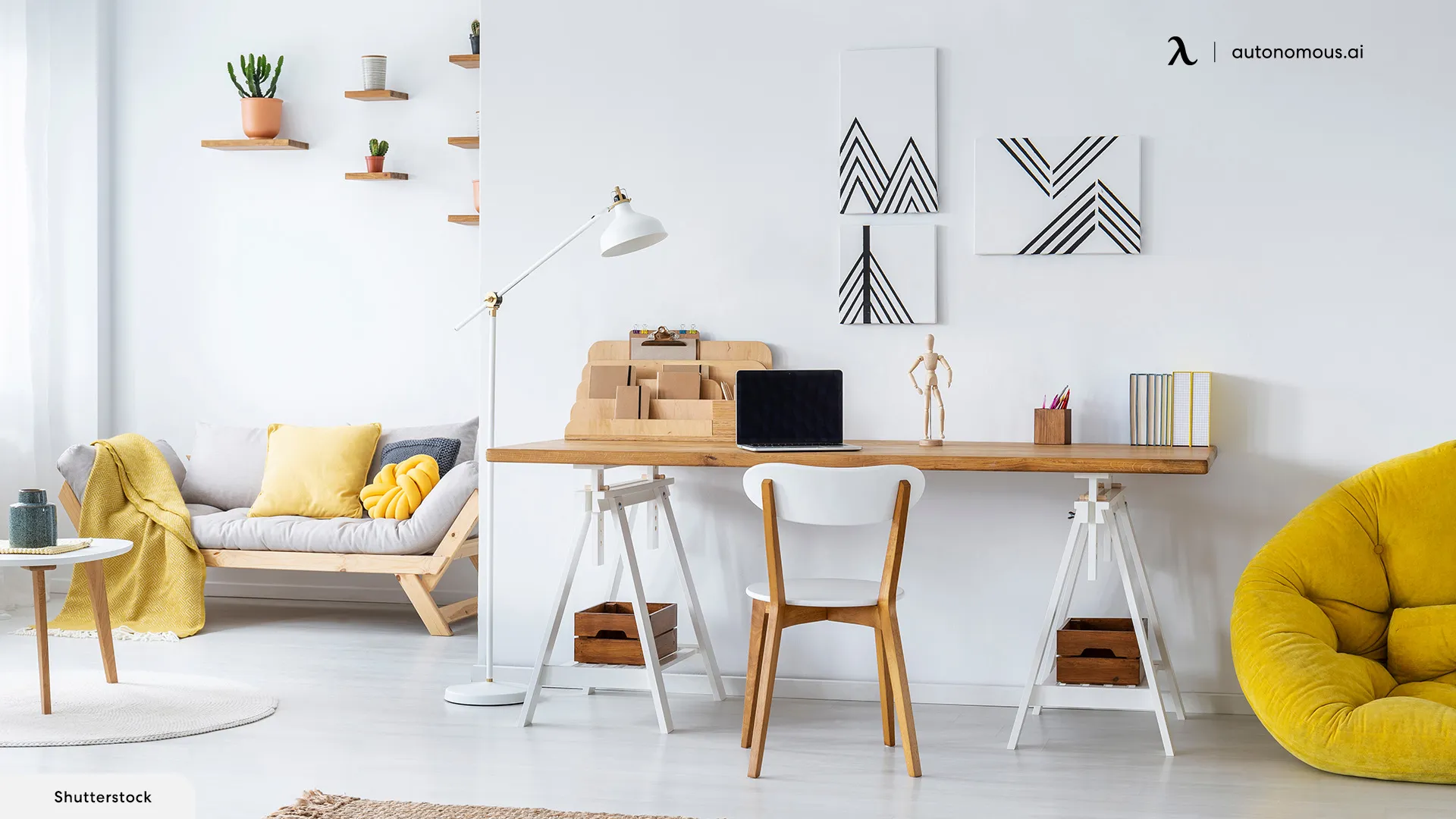
Is it advisable to place my desk in front of a window?
Placing your desk in front of window can provide natural light and a view, which can enhance mood and creativity. However, it's important to position your desk carefully to avoid glare and distractions.
How should I place my desk in my home office for optimal Feng Shui?
For optimal desk facing wall Feng Shui, place your home office desk against the wall in a power position facing the door without being directly in line with it. Ensure you have a solid wall behind you for support and incorporate elements that promote balance and harmony.
Can I create a home office in my bedroom?
Yes, you can create home office Ideas in the bedroom, but it's important to separate your workspace from your sleeping area. Consider using a room divider or furniture arrangement to delineate the space.
Conclusion
Ultimately, Feng Shui is about personal empowerment and creating spaces that support our well-being. While the "commanding position" offers advantages, the best desk placement is the one that resonates with you and fosters productivity. Experiment with different setups, incorporating Feng Shui principles and practical considerations, to design a home office that nurtures your success and happiness. Remember, your workspace should be a reflection of your unique energy and aspirations.
Spread the word
.svg)

.webp)
.webp)




